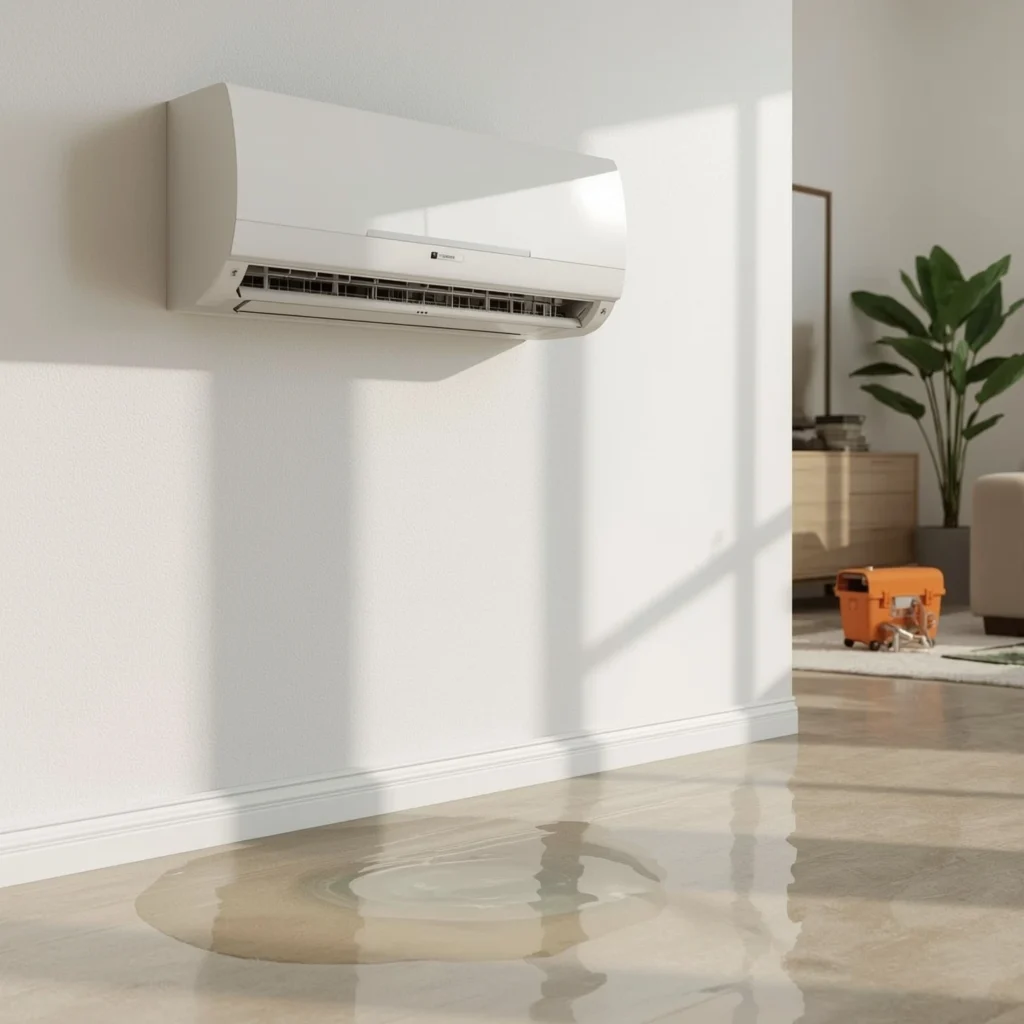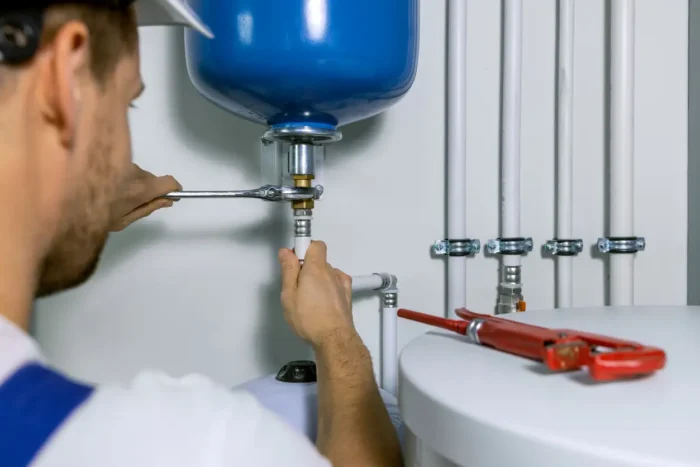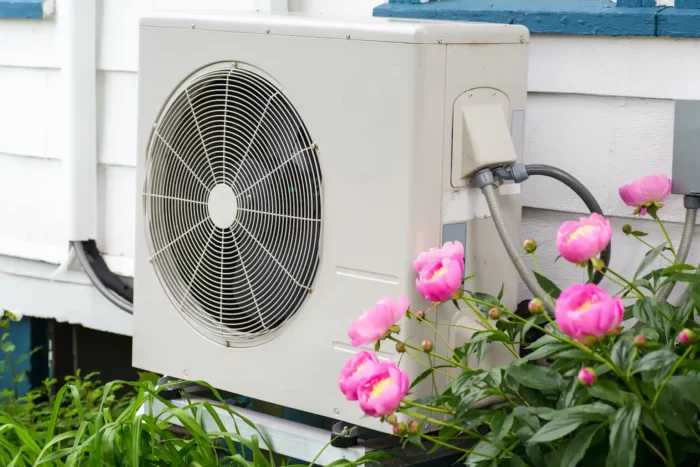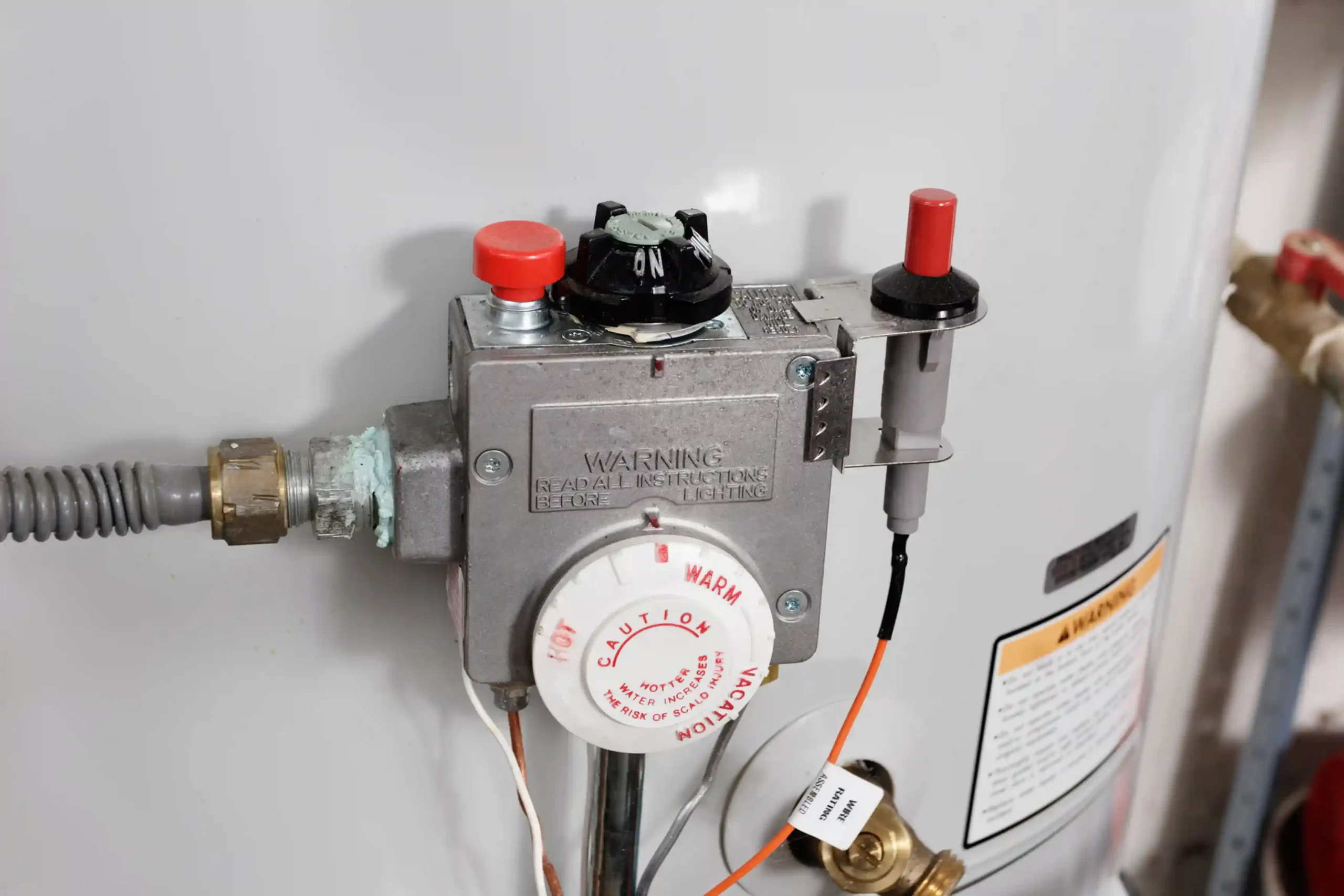Air conditioners are vital for maintaining comfort during hot weather but when they start leaking from air conditioner, it can be both frustrating and alarming. Water leakage in your AC is not just an inconvenience it can also lead to potential damage to your home. Understanding why there is water in air conditioner and how to fix it is crucial to avoid further complications.
In this article, we will explore the question why is my air conditioner leaking water the potential risks associated with the issue, and step by step solutions to address the problem.
Table of Contents
ToggleUnderstanding the AC Water Leakage Problem
Water in air conditioner is a normal part of the cooling process, as the unit removes moisture from the air. However, when you notice air conditioner dripping water inside or around the unit, it could signal a problem that requires attention. Leaking from air conditioner can be caused by various issues, and understanding the root cause can help you address it before it leads to further damage.
In this article, we will examine the common causes of aircon water leaking and offer actionable solutions to fix the issue.
Common Causes of Air Conditioner Water Leakage
Several factors can contribute to leaking from air conditioner, and identifying the problem is the first step to solving it. Below are the most common reasons behind water in air conditioner and air conditioner dripping water.
Clogged Condensate Drain Line
One of the primary reasons for aircon water leaking is a clogged condensate drain line. As your air conditioner cools the air, it condenses moisture, which should naturally drain away through the condensate line. If this line becomes clogged with debris, algae, or mold, the water will back up and start leaking from air conditioner.
Dirty Air Filters
When the air filters in your AC unit become dirty, they restrict the airflow, causing the evaporator coils to freeze. Once the ice thaws, there’s more water in air conditioner than usual, and the system can’t drain it efficiently. This often leads to air conditioner dripping water inside the unit.
Low Refrigerant Levels
Low refrigerant levels are another cause of aircon water leaking. If the refrigerant is low, the coils can freeze up. As they thaw, excess water accumulates and can lead to water leakage from the AC. This is a more serious problem, as low refrigerant levels also affect the cooling efficiency of your unit.
Faulty Pump or Overflow Tray
A malfunctioning pump or overflow tray can cause water in air conditioner to overflow or leak. These components are designed to collect and redirect the water away from the unit. If either part is damaged or misaligned, water may spill out, resulting in air conditioner dripping water where it shouldn’t.
Installation Issues
Improper installation of your air conditioner can lead to leaking from air conditioner as well. If the unit is not level, it may prevent proper drainage of the condensed water. Additionally, incorrect installation can result in water pooling inside the unit, leading to leaks and possible damage.
How to Troubleshoot and Fix the Problem
Once you have identified the potential cause of air conditioner dripping water, here are some steps you can take to resolve the issue.
Inspecting and Cleaning the Drain Line
A clogged drain line is one of the most common causes of leaking from air conditioner. To fix this, inspect the line for blockages. You can clean the line using a wet/dry vacuum or by flushing it with a mixture of water and bleach to clear out mold and debris.
Replacing or Cleaning the Air Filters
If your filters are clogged, they could be the reason for excess water in air conditioner. Replace or clean your air filters regularly to ensure smooth airflow. Dirty filters should be replaced every 1–3 months, depending on usage.
Checking Refrigerant Levels
If you suspect low refrigerant is causing aircon water leaking, it’s important to have a professional check and refill the refrigerant. Low refrigerant not only leads to water leakage but also reduces the cooling efficiency of your AC unit.
Inspecting the Pump and Overflow Tray
Inspect the pump and overflow tray for any damage or misalignment. If the pump is broken, it will need to be replaced. Misaligned trays should be adjusted to allow proper water drainage.
Preventive Measures to Avoid Future Leaks
To avoid future issues with air conditioner dripping water follow these preventive steps:
Regular maintenance: Have a professional service your AC unit at least once a year to clean components and check for potential problems.
Change air filters regularly: Ensure your air filters are cleaned or replaced every 1–3 months.
Check the drain line: Periodically inspect and clean the condensate drain line to prevent clogs.
When to Call a Professional Technician
While minor issues like clogged drain lines and dirty filters can often be fixed by the homeowner, other problems may require professional help. If you’re unsure about the cause of the leaking from air conditioner or if you’ve tried troubleshooting without success, it’s best to call a professional. A technician can handle more complex problems such as low refrigerant levels, compressor issues, or electrical malfunctions.
Conclusion
Experiencing leaking from air conditioner or air conditioner dripping water is frustrating, but by understanding the causes and taking the right steps to fix it, you can keep your system running efficiently. Regular maintenance, proper cleaning, and timely repairs will help prevent water in air conditioner from becoming a recurring issue.
If the problem persists despite troubleshooting, don’t hesitate to contact a professional AC technician in Temecula and Murrieta to ensure your AC unit is in optimal condition.
FAQs About AC Water Leakage
Can water leakage damage my AC unit?
Yes, if not addressed, aircon water leaking can cause damage to the internal components of the AC unit, such as the coils, and can also lead to mold growth and rust.
How can I tell if my drain line is clogged?
If you notice air conditioner dripping water or water pooling near the unit, the drain line may be clogged. You can check it by inspecting the line for visible blockages or using a wet/dry vacuum to remove debris.
What happens if I don’t fix the water leak?
If you ignore the issue of water in air conditioner, it could lead to more significant problems, including water damage to walls, floors, and even electrical components, which may lead to costly repairs.
How often should I clean my AC filters?
It’s recommended to clean or replace your air filters every 1–3 months to prevent air conditioner dripping water due to reduced airflow.
Is it safe to repair my AC myself?
Simple tasks like cleaning the drain line or replacing the air filters are safe to do yourself. However, more complicated issues like refrigerant leaks or electrical repairs should be handled by a licensed technician.





